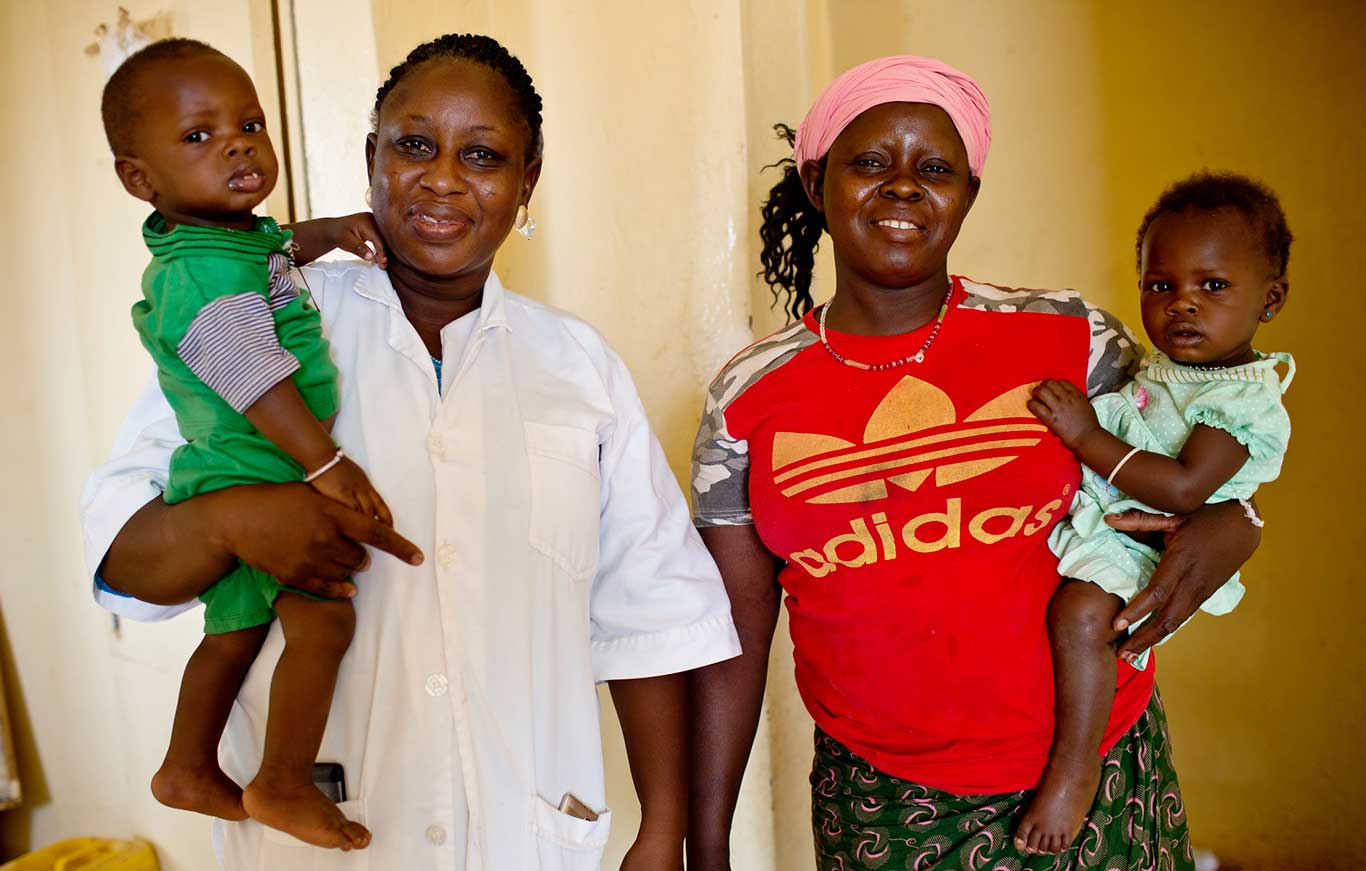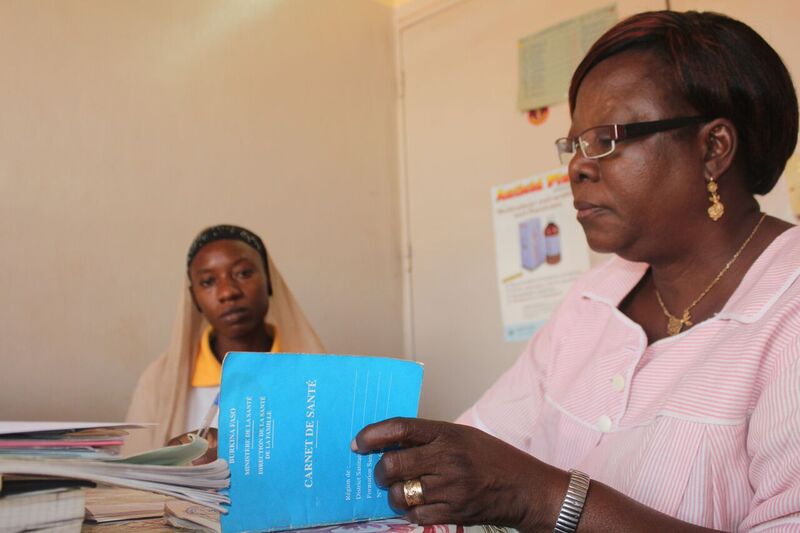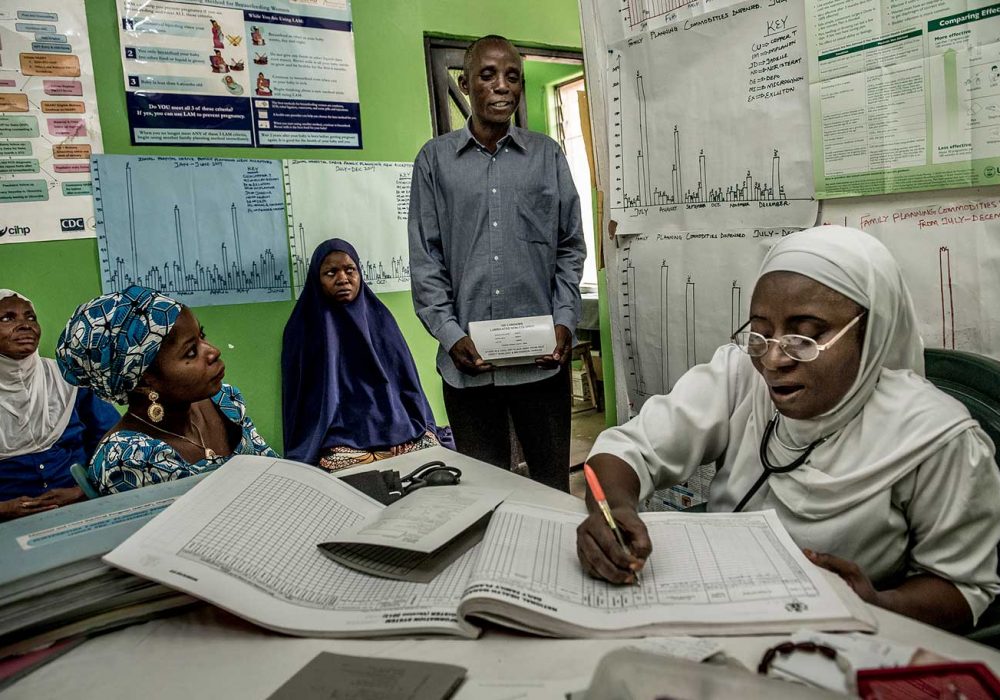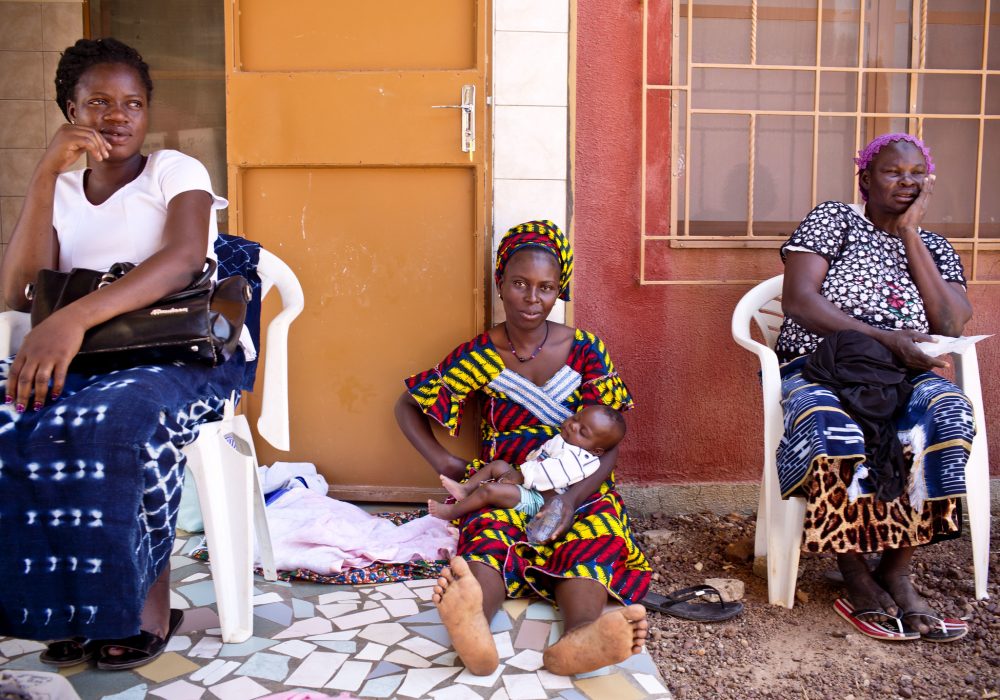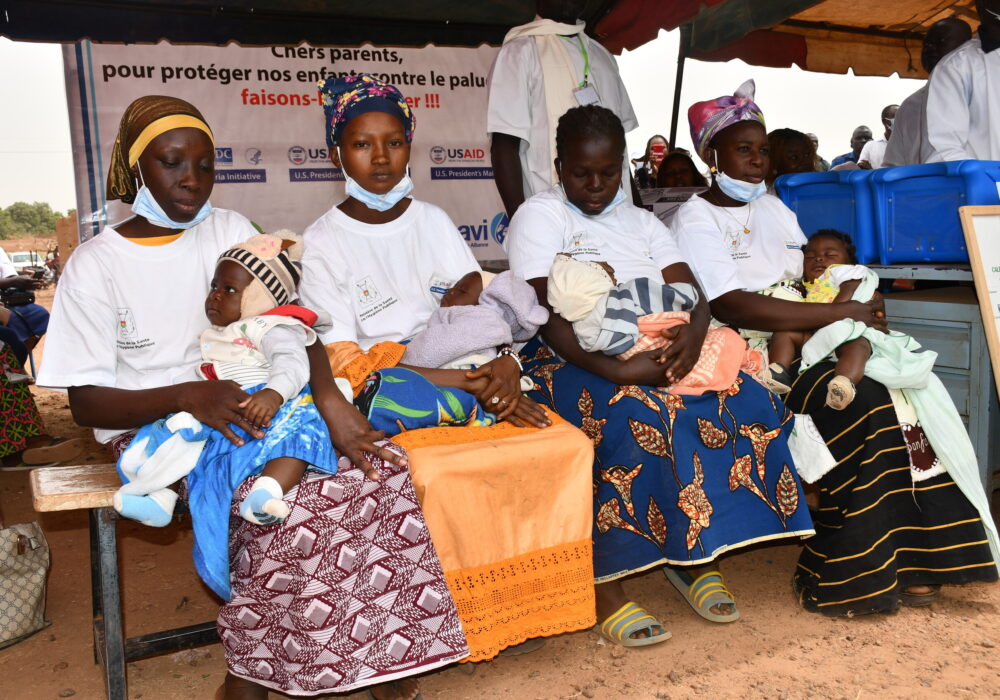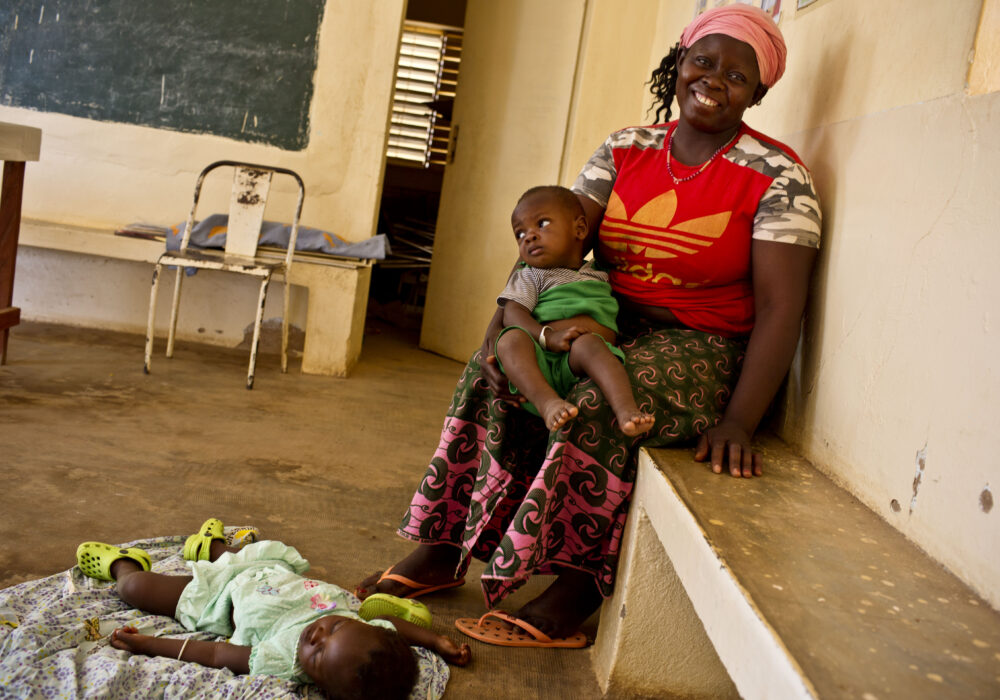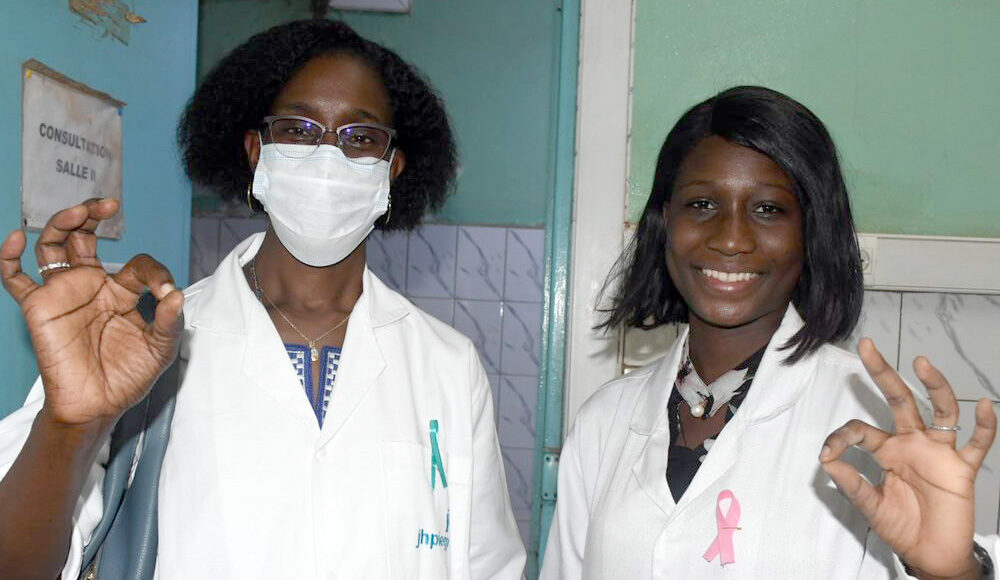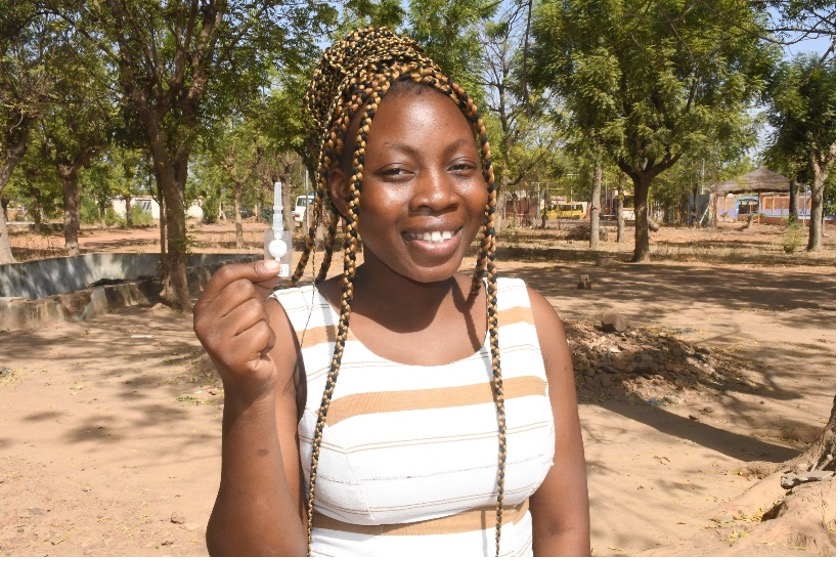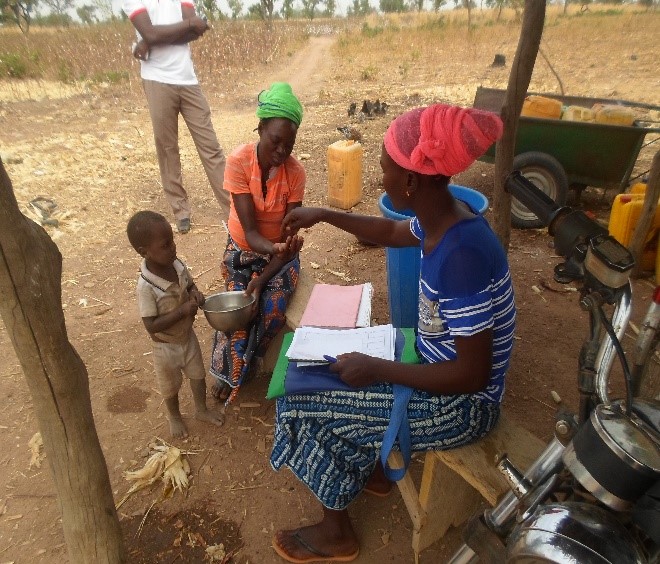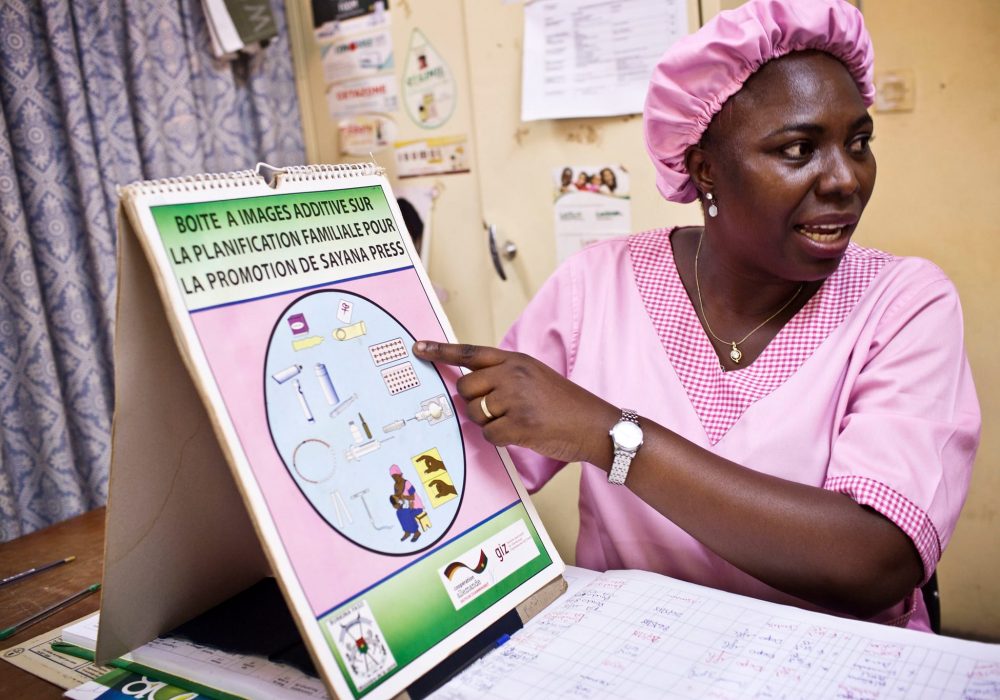Burkina Faso
Working to preserve the health of women and families since 1995.
- Jhpiego piloted and introduced cervical cancer prevention services at more than 20 health facilities, integrating these services into other care and adopting latest screening and treatment technologies. Also, as part of project implementation research, 100% of women received HPV test results, with 17% of women in the general population testing positive compared to 31% of women living with HIV. As a result of this research, the MOH introduced HPV testing in health facilities, along with management of precancerous lesions through thermocoagulation, which they will continue to use at all project intervention sites.
- Jhpiego provides expertise to the MOH’s malaria prevention, diagnosis and treatment activities. In 2023, Jhpiego activities contributed to a decrease in the incidence of uncomplicated malaria cases by 15% and severe malaria cases by more than 20%. The number of deaths among children under five years old also decreased by 20% compared to 2022.
- In 2023, under the CDC-funded Enhancing Global Health Security project, Jhpiego provided intensive support to the MOH in the fight against a dengue epidemic, including drafting guidelines for the management of severe cases of dengue fever and training health workers in management of severe cases.

Our Work in Burkina Faso
Integrated Health Services Project
The Jhpiego-led, five-year Integrated Health Services Project (IHS) supports the Government of Burkina Faso to increase access, equity and uptake of quality, integrated services for malaria and maternal newborn, child and adolescent health and nutrition in 19 districts in the Centre-Est, Centre-Ouest and Sud-Ouest regions. IHS works from the national level to the community level to empower district health management teams, facility-based health workers, community health workers and communities by providing capacity building and supportive supervision. By using a client-centered approach to respond to client preferences and expectations, especially for marginalized and vulnerable populations, the project is minimizing missed opportunities and providing timely, targeted care. IHS is expanding use of a digital health platform at all levels of the health system in the targeted regions to promote quality integrated service delivery and improve data quality and use of data for clinical decision-making and management. The project is funded by the U.S. Agency for International Development. Other members of the consortium include Terre des Hommes, Viamo and local organizations Conseil Burkinabe des Organisations de Développement Communautaire (BURCASO) and Association Songui Manegré/Aide au Développement Endogène (ASMADE).
Enhancing Global Health Security: Expanding Efforts and Strategies to Protect and Improve Public Health Globally
Funded by the U.S. Centers for Disease Control and Prevention (CDC), this five-year project builds upon activities funded by CDC to support Global Health Security through implementation of programs and activities that focus on protecting and improving health globally through partnerships with Ministries of Health and other institutions. With an initial emphasis on addressing the COVID-19 pandemic, the project is supporting countries—including Burkina Faso—and carrying out regional work in West Africa and South America to improve prevention of avoidable epidemics, including naturally occurring outbreaks and intentional or accidental releases of dangerous pathogens, and to improve ability to detect threats early and respond rapidly and effectively to public health threats of international concern. The project is being implemented by a Jhpiego-led consortium that includes the Johns Hopkins Center for Health Security, the Johns Hopkins University Applied Physics Laboratory, Global Scientific Solutions for Health, and Johns Hopkins University Center for Global Health.
Scale Up Cervical Cancer Elimination with Secondary Prevention Strategy (SUCCESS)
Unitaid is funding a consortium, led by Expertise France, that seeks to eliminate cervical cancer in Burkina Faso, Côte d’Ivoire, Guatemala and the Philippines through secondary prevention (i.e., detecting disease early to slow or halt its progress). The three-year SUCCESS project is designed to shift the countries from a largely opportunistic cervical cancer screening model to a systematic approach centered on innovations related to: 1) reinforced and simplified cervical cancer screening through the introduction of human papilloma virus (HPV) testing with self-collection sampling; 2) secondary prevention of cervical cancer including use of efficient methods for treatment of cervical precancerous lesions such as thermal ablation; and 3) intensified dissemination of information on cervical cancer and new preventive technologies. In so doing, SUCCESS aims to support countries to “leapfrog” to a state-of-the-art services model recommended by the World Health Organization. As the implementing partner of the consortium, Jhpiego is integrating and expanding cervical cancer prevention and treatment services into both new and existing platforms, relying on our established relationships with governments and stakeholders in all four countries. Through demand-generation and community engagement activities, the project plans to screen a total of 185,000 women, a significant proportion of whom will be women living with HIV.
Global Healthcare Detection and Response
This project, funded by the U.S. Centers for Disease Control and Prevention, seeks to enhance detection and response to infectious disease threats globally by developing networks to implement prevention and containment strategies at local, national and regional levels. Interventions are aimed to prevent, detect and respond to infectious disease threats in healthcare, including antimicrobial resistance, healthcare-associated infections and COVID-19. Jhpiego’s role in this project, which is led by Global Scientific Solutions for Health, is to help facilities in Burkina Faso better respond to threats associated with meningitis.
The people we serve
Country Contact
Mathurin Bonzi, Country Director
Tel. 226 25 34 12 44
Boulevard Ratag Rima, Porte 1045
Quartier Gounghin sud, Secteur 6
01 BP 5654 Ouagadougou 01
Burkina Faso
Current and Recent Donors
Gates Foundation
Burkina Ministry of Health
CDC
Gavi, The Vaccine Alliance
European Commission
USAID






